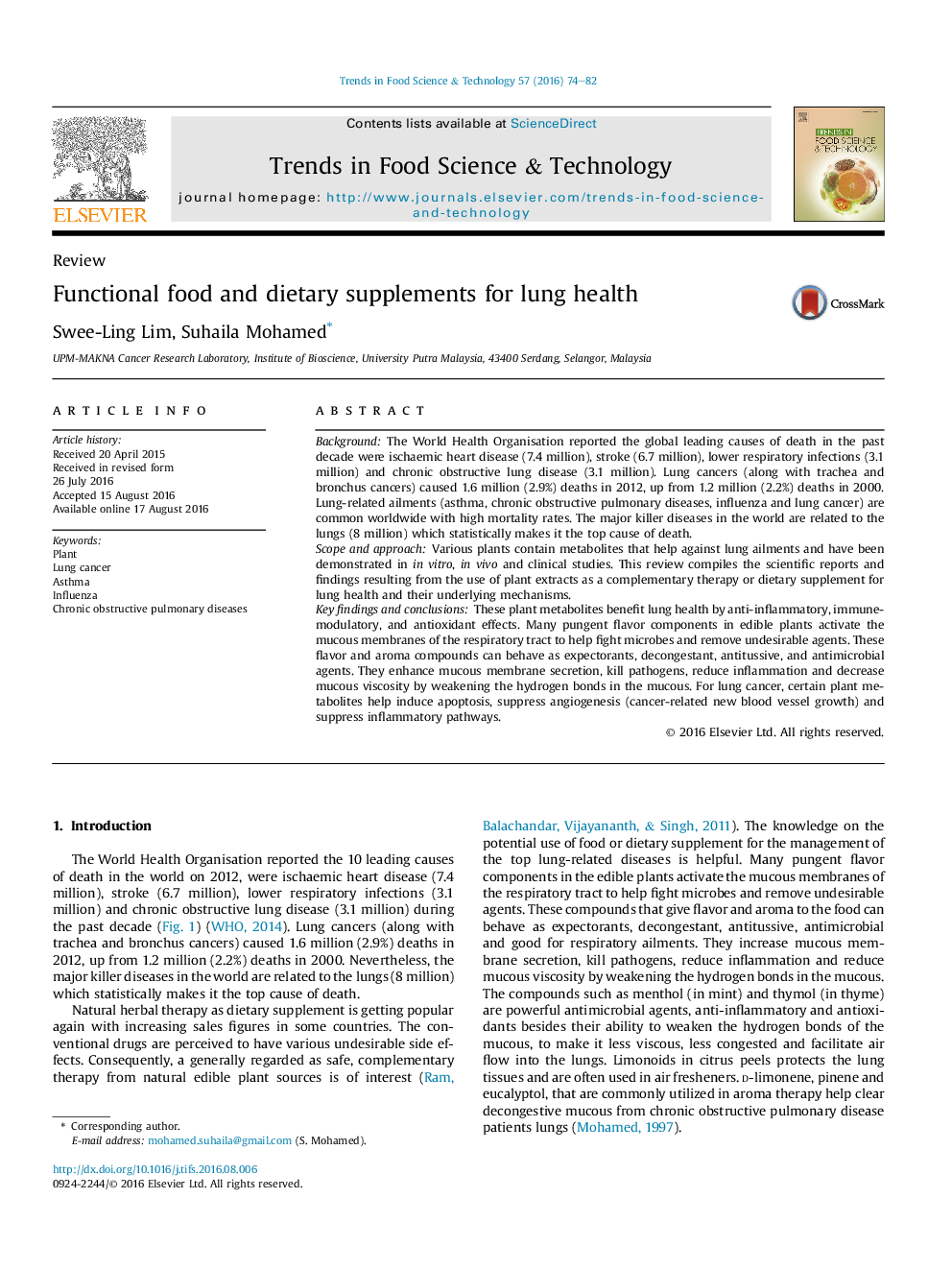| Article ID | Journal | Published Year | Pages | File Type |
|---|---|---|---|---|
| 5523846 | Trends in Food Science & Technology | 2016 | 9 Pages |
â¢Evidenced based reviews on Food & dietary supplement for lung health.â¢Plants that benefit asthma, influenza & pulmonary ailments compiled.â¢Plants beneficial for lung cancer studied in vitro and in vivo tabulated.
BackgroundThe World Health Organisation reported the global leading causes of death in the past decade were ischaemic heart disease (7.4 million), stroke (6.7 million), lower respiratory infections (3.1 million) and chronic obstructive lung disease (3.1 million). Lung cancers (along with trachea and bronchus cancers) caused 1.6 million (2.9%) deaths in 2012, up from 1.2 million (2.2%) deaths in 2000. Lung-related ailments (asthma, chronic obstructive pulmonary diseases, influenza and lung cancer) are common worldwide with high mortality rates. The major killer diseases in the world are related to the lungs (8 million) which statistically makes it the top cause of death.Scope and approachVarious plants contain metabolites that help against lung ailments and have been demonstrated in in vitro, in vivo and clinical studies. This review compiles the scientific reports and findings resulting from the use of plant extracts as a complementary therapy or dietary supplement for lung health and their underlying mechanisms.Key findings and conclusionsThese plant metabolites benefit lung health by anti-inflammatory, immune-modulatory, and antioxidant effects. Many pungent flavor components in edible plants activate the mucous membranes of the respiratory tract to help fight microbes and remove undesirable agents. These flavor and aroma compounds can behave as expectorants, decongestant, antitussive, and antimicrobial agents. They enhance mucous membrane secretion, kill pathogens, reduce inflammation and decrease mucous viscosity by weakening the hydrogen bonds in the mucous. For lung cancer, certain plant metabolites help induce apoptosis, suppress angiogenesis (cancer-related new blood vessel growth) and suppress inflammatory pathways.
